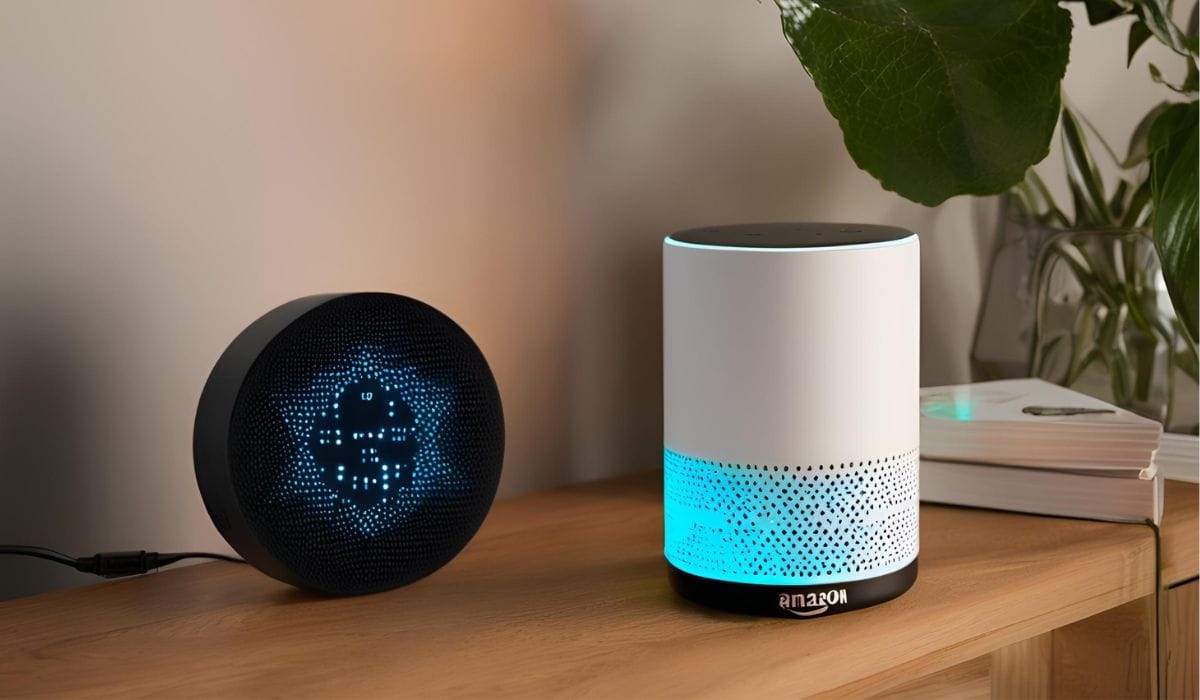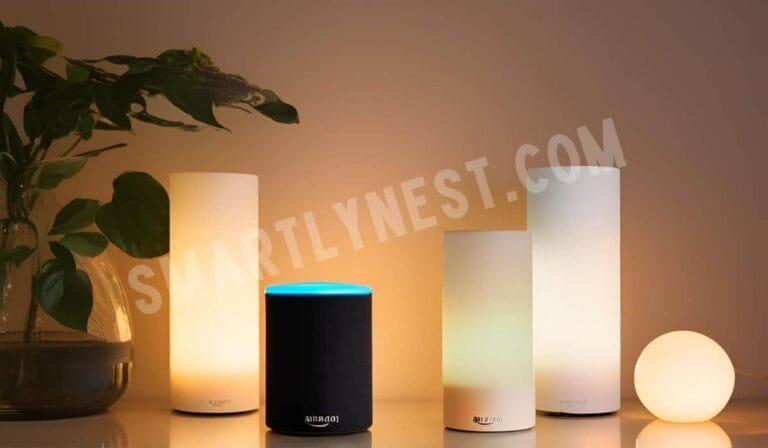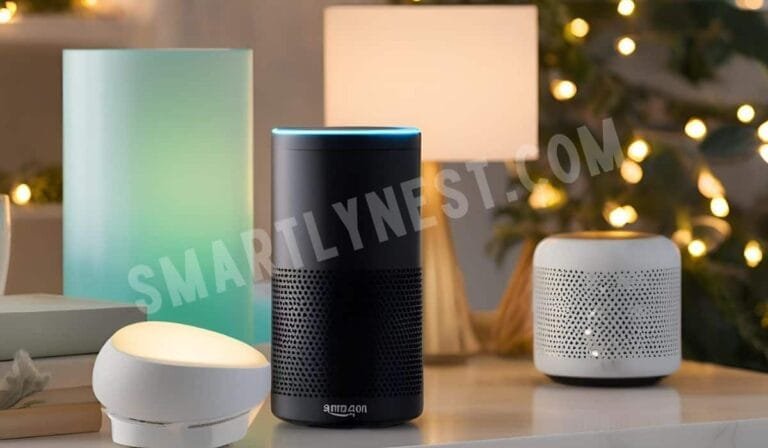
In the age of smart home technology, many of us have embraced the convenience of voice-controlled devices. One popular example is Alexa lights, which offer the ability to adjust lighting with just a command. But with this high-tech ease comes a pressing question: Do Alexa lights use more electricity? If you’re wondering whether the smart lighting in your home is affecting your energy bills, you’re not alone. This article will delve into the electrical consumption of Alexa lights, comparing them to traditional lighting solutions, and explore the factors that influence their energy usage. We’ll also address common concerns and provide insightful answers to help you make informed decisions about your smart lighting setup.
Understanding Alexa Lights and Their Power Consumption
Alexa lights, or smart bulbs controlled by Amazon’s Alexa, offer an array of features that go beyond traditional lighting. They can change colors, dim, and even sync with your daily routines. But how does all this functionality affect their energy consumption?
1. The Basics of Smart Lighting Technology
Smart lights, including Alexa-compatible bulbs, are designed to be energy-efficient. They typically use LED technology, which is known for its low power consumption compared to incandescent bulbs. LEDs convert a higher percentage of energy into light, whereas traditional bulbs waste much of it as heat.
2. Energy Consumption Comparison
When comparing Alexa lights to traditional incandescent or even CFL bulbs, smart LEDs usually come out ahead in terms of energy efficiency. For instance, a standard 60-watt incandescent bulb can be replaced by a smart LED bulb that uses only about 8-10 watts to produce the same amount of light. This significant reduction in wattage results in lower overall energy usage.
3. The Role of Connectivity
Smart bulbs often stay connected to your Wi-Fi network, and some models might have additional features like motion sensors or integrated speakers. While these features do require a small amount of power, the impact on your electricity bill is generally minimal. The majority of energy consumption in smart bulbs comes from the light they emit, not from their connectivity.
Factors Affecting Energy Use in Alexa Lights
Several factors can influence how much electricity your Alexa lights use. Understanding these factors can help you manage and optimize your smart lighting system.
1. Brightness and Usage Patterns
The brightness level of your Alexa lights impacts their energy consumption. Higher brightness settings will consume more power. Additionally, how often and for how long you use your lights plays a significant role. A light left on continuously will use more energy than one used intermittently.
2. Color Temperature
Smart bulbs often allow you to adjust the color temperature. Warmer colors (like those resembling incandescent light) can consume slightly more power than cooler, daylight colors. However, this difference is generally small.
3. Integration with Other Smart Devices
If your Alexa lights are part of a broader smart home system, their energy consumption might be affected by interactions with other devices. For example, if your smart lights are linked to a smart thermostat that adjusts heating or cooling based on light usage, this could indirectly impact overall energy consumption.
4. Standby Power Consumption
While the primary use of energy in smart bulbs comes from their illumination, they do consume a small amount of power when in standby mode. This is due to their need to maintain a connection with your Wi-Fi network. However, this standby consumption is minimal compared to the energy used for actual lighting.
Special Opinion: Are Alexa Lights Worth the Investment?
From an energy perspective, Alexa lights are generally more efficient than traditional lighting options. Their use of LED technology ensures that they consume less power while providing the same or better illumination. Additionally, the convenience of voice control and smart features can contribute to energy savings by allowing more precise control over your lighting needs.
However, it’s essential to consider the overall cost of the smart lighting system. While the bulbs themselves may be more expensive than traditional ones, their long lifespan and lower energy consumption can offset the initial investment. Moreover, integrating smart lights into a well-designed energy management system can lead to additional savings.
FAQ Section
Do Alexa lights consume more energy than regular LED bulbs?
No, Alexa lights are typically LED bulbs, which are already known for their energy efficiency. They generally use the same or slightly less energy compared to standard LED bulbs.
How much electricity does a typical Alexa light use?
A typical Alexa-compatible LED light bulb uses between 8-10 watts, similar to other LED bulbs that produce the same amount of light as a 60-watt incandescent bulb.
Does leaving Alexa lights on all day increase electricity costs significantly?
Leaving Alexa lights on continuously will increase energy consumption, but due to their LED nature, the increase is relatively modest compared to traditional bulbs.
Can using Alexa lights help save on electricity bills?
Yes, using Alexa lights can help save on electricity bills due to their energy-efficient LED technology. Additionally, smart features like scheduling and remote control can further optimize energy use.
Are there any additional costs associated with Alexa lights?
The primary additional cost is the initial purchase of the smart bulbs and possibly a smart hub if your system requires one. Ongoing electricity costs are generally comparable to or less than those of traditional lighting.
How can I reduce energy consumption with Alexa lights?
To reduce energy consumption, use lower brightness settings, make use of scheduling features to turn lights off when not needed, and choose cooler color temperatures.
Do Alexa lights have a significant impact on my home’s overall energy usage?
The impact of Alexa lights on your overall energy usage is minimal compared to other household appliances. Their efficient LED technology ensures they contribute little to your electricity bill.
Conclusion
In conclusion, Alexa lights are an excellent choice for those looking to enhance their home with smart technology without a significant impact on their electricity bills. Their energy efficiency, when compared to traditional lighting options, is a clear advantage. While the initial cost of smart bulbs may be higher, their long-term benefits, including energy savings and convenience, make them a worthwhile investment. By understanding the factors that affect energy use and utilizing smart features effectively, you can enjoy the best of both worlds: advanced lighting technology and energy efficiency.
Embracing Alexa lights means embracing a smarter, more energy-conscious way of illuminating your home. With their innovative features and efficient power consumption, they stand out as a modern solution to your lighting needs.
{ “@context”: “https://schema.org”, “@type”: “FAQPage”, “mainEntity”: [ { “@type”: “Question”, “name”: “Do Alexa lights consume more energy than regular LED bulbs?”, “acceptedAnswer”: { “@type”: “Answer”, “text”: “No, Alexa lights are typically LED bulbs, which are already known for their energy efficiency. They generally use the same or slightly less energy compared to standard LED bulbs.” } }, { “@type”: “Question”, “name”: “How much electricity does a typical Alexa light use?”, “acceptedAnswer”: { “@type”: “Answer”, “text”: “A typical Alexa-compatible LED light bulb uses between 8-10 watts, similar to other LED bulbs that produce the same amount of light as a 60-watt incandescent bulb.” } }, { “@type”: “Question”, “name”: “Does leaving Alexa lights on all day increase electricity costs significantly?”, “acceptedAnswer”: { “@type”: “Answer”, “text”: “Leaving Alexa lights on continuously will increase energy consumption, but due to their LED nature, the increase is relatively modest compared to traditional bulbs.” } }, { “@type”: “Question”, “name”: “Can using Alexa lights help save on electricity bills?”, “acceptedAnswer”: { “@type”: “Answer”, “text”: “Yes, using Alexa lights can help save on electricity bills due to their energy-efficient LED technology. Additionally, smart features like scheduling and remote control can further optimize energy use.” } }, { “@type”: “Question”, “name”: “Are there any additional costs associated with Alexa lights?”, “acceptedAnswer”: { “@type”: “Answer”, “text”: “The primary additional cost is the initial purchase of the smart bulbs and possibly a smart hub if your system requires one. Ongoing electricity costs are generally comparable to or less than those of traditional lighting.” } }, { “@type”: “Question”, “name”: “How can I reduce energy consumption with Alexa lights?”, “acceptedAnswer”: { “@type”: “Answer”, “text”: “To reduce energy consumption, use lower brightness settings, make use of scheduling features to turn lights off when not needed, and choose cooler color temperatures.” } }, { “@type”: “Question”, “name”: “Do Alexa lights have a significant impact on my home’s overall energy usage?”, “acceptedAnswer”: { “@type”: “Answer”, “text”: “The impact of Alexa lights on your overall energy usage is minimal compared to other household appliances. Their efficient LED technology ensures they contribute little to your electricity bill.” } } ] }






